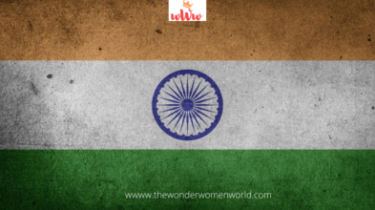Hum Honge Kamyaab Ek Din

This week I was invited by a school to host a webinar around the theme of patriotism. Eventually I ended up talking about partition owing to a book that I have written around it. Nonetheless, my curiosity made me Google patriotism and this is what I found.
Wikipedia defines it as the ‘feeling of love, devotion and sense of attachment to a homeland and alliance with other citizens who share the same sentiment. This attachment can be a combination of many different feelings relating to one’s own homeland, including ethnic, cultural, political or historical aspects.’
Further on George Orwell called it ‘devotion to a particular place and a particular way of life, which one believes to be the best in the world but has no wish to force upon other people.’
If I hinge my observations on these words, I’d say Indians would rank especially low on the patriotic index. In jingoism we may be right there on the top, patriotism isn’t something we can identify with.
To begin with, I sense a trend in many to narrow down their definition of ‘homeland’. These people identify less with ‘India’ and more with the region or the state they/ their parents were born in. This is leading to an unprecedented alienation amongst us on the basis of our castes, our colour, our language and even food. Identifying oneself with a specific region would still be understandable but assuming that one’s ‘culture’ (whatever that encompasses) is superior to others; now that is extremely disturbing. The keywords ‘no wish to force upon other people’ are summarily being ignored.
We have always been uncomfortable with our history anyway. The numerous invasions and the influence of those rulers isn’t just part of our history but also in the warp and weft of our culture, language or the food we eat. The enthusiasm that every successive government shows in changing the names of roads, stations and cities makes me wonder if it’s a deliberate attempt to disown our history. Sometimes I feel if history was taught the way it should be, may be by now we would have learnt some lessons. We would probably take more pride in our diversity, learnt to accept each other and never allow the divisive forces to control our minds.
Another thing that worries me is the eyebrows that are raised when someone questions the authorities. Why is dissidence being labelled as unpatriotic? My understanding is that patriotism means loving one’s country. If the authorities’ decisions work well for the country one can continue supporting them but if they don’t, we should be clear who we owe our allegiance to. In my defense, let me quote Mark Twain-Loyalty to country ALWAYS. Loyalty to government, when it deserves it.
In the webinar, a student asked if we could have avoided partition. Till a few years ago, I used to believe that we could have. I cannot say that with the same confidence when I look around and see how easily we pick fights on petty issues. We form packs and allow herd mentality to take over and are over eager to segregate ‘us’ from ‘them’. The hate that we spew scares me now. This reminds me of the blind hagfish. 300 million years ago these hagfish had working eyes but evolution took them away. Are we like the hagfish a case of regressive evolution? The past seven decades tempts me to think that might be the case.
As we celebrate our country’s independence, let’s ponder on this. My wish for all of us is that may we rise above jingoism and embrace our diversities. As unachievable as it sounds, I want to be hopeful that hum honge kamyaab ek din.

7:34 PM
You are shared your views very honestly and if I say in BOLD way… I have never searched the definition of Patriotism. I feel we will achieve the true freedoms when we will call ourselves Indians.
Keep writing I wait to read your blogs every Saturday